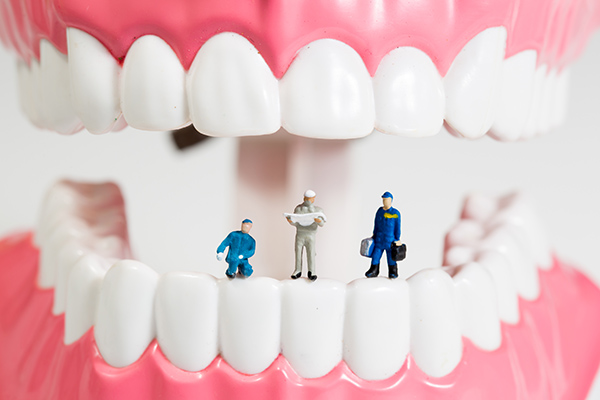 Patients often run to the general dentist to have a tooth repair. Dental damage can result from decay or an accident. Your dentist will always make sure you have the right kind of restoration for your dental needs. If you want to know more about the common dental repair treatments from your general dentist, here are the details.
Patients often run to the general dentist to have a tooth repair. Dental damage can result from decay or an accident. Your dentist will always make sure you have the right kind of restoration for your dental needs. If you want to know more about the common dental repair treatments from your general dentist, here are the details.
Porcelain crowns
These are common teeth restorations. The general dentist can place a custom-fit porcelain crown over a sensitive, chipped, or cracked tooth. The dentist will shave off some of the healthy tooth structure first before placing a porcelain crown over it. Dental crowns may also be acrylic. Most patients prefer porcelain. This element looks and feels like natural teeth.
A dental crown can improve the look of the damaged tooth. It can hide imperfections like discolorations and chipping. A crown can also protect the treated tooth. Its tooth-colored porcelain material allows the crown to blend with the neighboring natural teeth.
Porcelain veneers
These thin porcelain shells can cover the front part of the tooth. Porcelain veneers can hide any damage, staining, and other imperfections. The general dentist will roughen the surface of the tooth first. This will allow the veneers to bond well to the patient’s teeth.
Veneers are quick and realistic restorations. The patient can have a brand-new smile without going through oral surgery. Porcelain veneers can restore cracked, crooked, or chipped teeth. The shells go on the front surface of teeth. Proper care and maintenance can make these dental restorations last for decades.
Root canal
Trauma, decay, and deep cracks can damage the pulp. Infection can then set in and cause more problems. The dentist must remove the damaged pulp and clean out the space. Disinfecting and drying the space will come next. Then, the dentist will fill the space with gutta-percha. A dental crown will cover the treated tooth to strengthen, protect, and hold the tooth together.
Dental bonding
This is a quick solution to a damaged tooth. Here, the general dentist will place a composite resin material on the damaged tooth and shape it accordingly on the missing part of the tooth. A curing light will harden the material. The dentist will then shape and polish the tooth to look and feel like neighboring natural teeth.
Dental implant surgery
The general dentist recommends this treatment for patients who have severe dental damage. A crack or decay can reach below or above the gumline. The dentist will need to remove the damaged tooth. Then, the dentist will place biocompatible titanium rods into the extraction site. Osseointegration will take place. The dentist will attach the abutment and dental crown.
Repairing your tooth is possible with the help of your general dentist
Dental damage can occur slowly or by surprise. The right treatments can restore the tooth based on the patient’s preferences and dental needs. Your general dentist can check the extent of the damage and think of the right restorative treatment. An urgent appointment with your dentist can start the repair treatment to help you regain your dental health.
Request an appointment or call Visalia Care Dental at 559-975-1213 for an appointment in our Visalia office.
Related Posts
Seeing a general dentist for routine checkups is one of the most effective ways to protect both oral and overall health. These visits enable dental professionals to identify concerns early, provide essential preventive care, and offer personalized advice tailored to each patient's specific needs. Maintaining a regular schedule of dental checkups supports long-term oral health…
Are you new to the Visalia area? Choosing a new general dentist is an important decision that can impact your long-term oral health. This dental professional provides preventive care, diagnoses dental issues, and performs essential treatments, making your dental provider an essential part of a comprehensive healthcare team.A general dentist serves as the primary care…
A general dentist plays a vital role in guiding patients through the process of maintaining oral health while undergoing orthodontic treatment, such as braces. Braces are an excellent solution for straightening teeth and improving the alignment of the bite. However, they require special care to ensure that both the braces and teeth remain in good…
